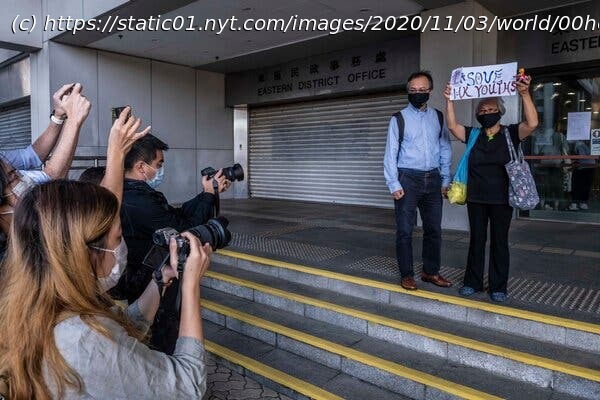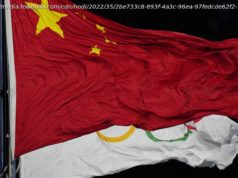Alexandra Wong, 64, better known as “Grandma Wong,” said she had been detained by the Chinese authorities and made to pledge she would stop protesting.
When protests swept Hong Kong last year, Alexandra Wong, better known as “Grandma Wong,” always seemed to be there. Day after day, she stood out among the hundreds of thousands of demonstrators as a small woman with short gray hair waving a large British flag. Then, during a few tumultuous days in August when the police fired tear gas in a subway station and protesters shut down the city’s airport, Ms. Wong,64, suddenly vanished. Her friends in the movement quickly had their suspicions. They believed she had disappeared into China’s opaque legal system, an alarming outcome for protesters that has become all the more chilling after Beijing imposed a national security law on Hong Kong this year. When Ms. Wong finally re-emerged last month, she confirmed that she had been detained by the Chinese authorities. “I worried that I would die in China,” she said. For many in Hong Kong, her detention was a reminder of what had brought them to the streets in the first place: an extradition bill to mainland China, where courts are controlled by the Communist Party. Her arrest was confirmation that Beijing’s creeping authoritarianism had hardly been curbed by the bill’s failure to pass and that the protesters had been right to sound the alarm when they did. In August,12 activists were detained by Chinese officials while trying to flee Hong Kong by speedboat. They still haven’t been allowed to see their lawyers. “Her experience shows that the whole anti-extradition bill movement was correct,” said Fernando Cheung, a pro-democracy lawmaker in Hong Kong who helped Ms. Wong during her detention. “It shows that the worries we had about the extradition bill were true. Look at how they execute the law in the mainland.” Ms. Wong has never married and has no children. She grew up in Hong Kong and worked in the city as an accountant. But in 2006, as the cost of living ballooned, she moved to Shenzhen, a neighboring city in the Chinese mainland with more affordable housing. She had long written to Hong Kong officials with suggestions on how to address the city’s growing income inequality — a higher minimum wage, stipends to support artists — but felt she had been ignored.
Start
United States
USA — China Hong Kong Protest Icon Mysteriously Vanished. Then She Returned, Unbowed.






